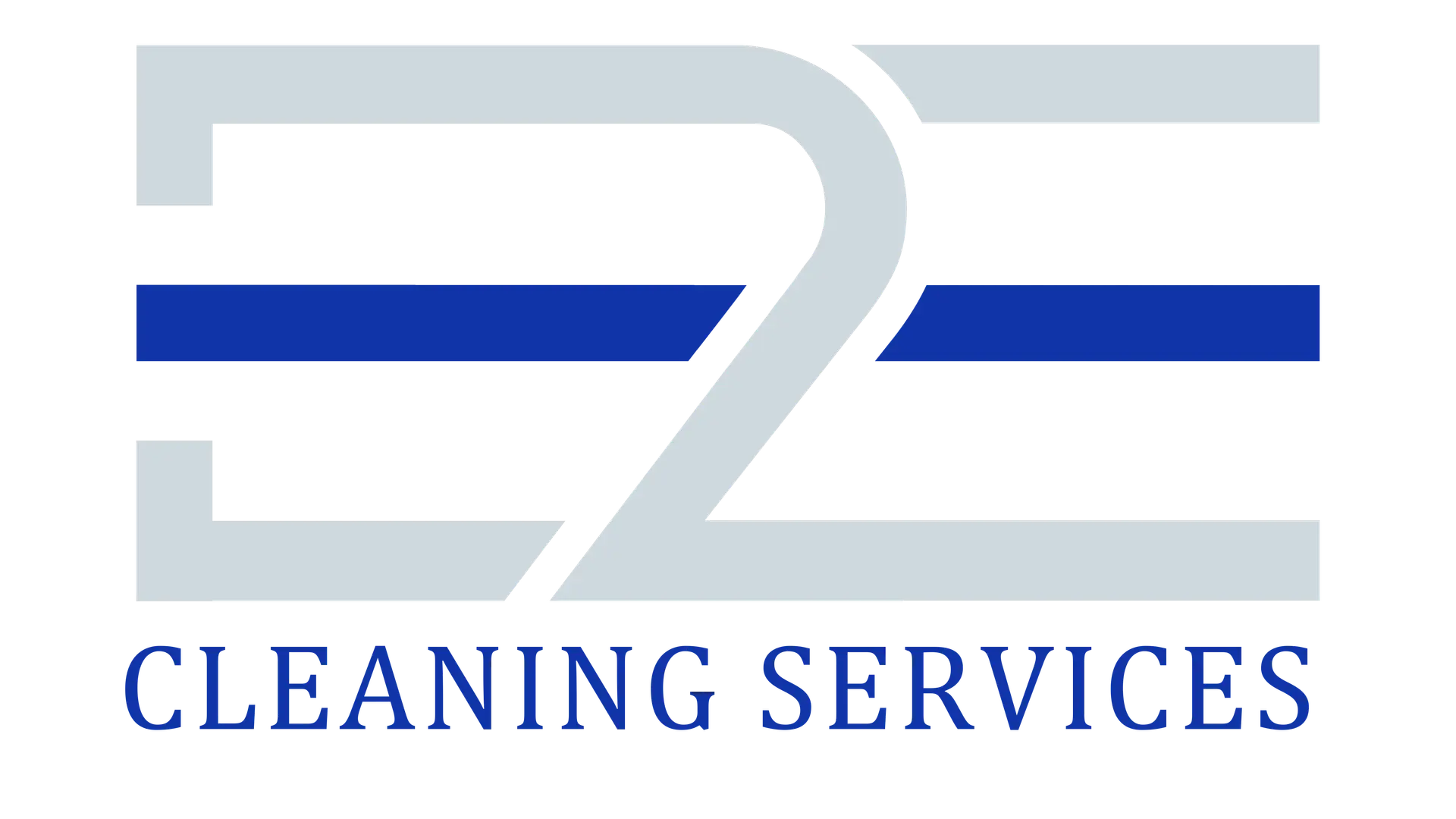Clean and well-maintained workspace do much more than project professionalism. They have an underlying effect on employee mental health and wellbeing.
This comprehensive guide delves into the crucial link between professional cleaning services and mental wellness in the workplace, examining the direct impact that environmental factors have on psychological health, cognitive function, and productivity.
Based on current research and industry experience, we share practical strategies for using professional cleaning as a key component of successful workplace wellness programs.
The Psychological Foundation of Clean Workspaces
Our physical environments have a profound impact on our mental states in ways that many employers don’t appreciate. Research consistently shows that cluttered, disorganized or dirty workspace have a negative impact on cognitive function and psychological well being.
The human brain is wired to seek order and structure and when surrounded by disorder, employees experience measurable increases in stress hormones and decreased ability to focus.
Professional cleaning creates environments that actively support mental clarity instead of deplete it. When employees work in clean, orderly spaces, they experience less cognitive load – their brains aren’t constantly processing background visual chaos or environmental distractions. This cognitive liberation enables more attention to meaningful tasks at work and creative problem-solving.
Studies show that disorganization wastes cognitive resources and greatly diminishes the ability to focus. Our brains process all the visual information in our surroundings and that means that clutter and mess are constantly vying for attention with important work tasks.
By contrast, well-maintained spaces give a feeling of calm and order that employees link to stability and control.
The psychological benefits go beyond individual wellness and have an impact on workplace culture. Clean environments are a sign of organizational values, showing that the company values the wellbeing and professionalism of its employees. This cultural reinforcement leads to positive psychological associations with the workplace, and reinforces the identification of employees with company values.
For facility managers who are implementing workplace wellness initiatives, professional cleaning is one of the most direct and immediately impactful interventions available. Unlike many wellness programs that require sustained behavior change, environmental improvements are immediately psychological in nature and compound over time.
How Clean Environments Reduce Workplace Stress
Workplace stress has reached epidemic proportions with significant implications not only for the health of individuals but also for the performance of organizations. Professional cleaning services help to directly address environmental stressors that contribute to anxiety and mental fatigue in the workplace.
Clean, organized environments give employees an important sense of control over their environment. When workspaces are predictably clean and orderly, anxiety related to environmental uncertainty is reduced in the employees. This psychological stability is especially important during times of high pressure work when further stressors cannot be eliminated.
The sensory experience of cleanliness is also a big factor in stress reduction. Professional cleaning removes unpleasant odors that can cause stress and negative mood states. Instead, environments that are well maintained provide neutral or pleasant sensory experiences that promote psychological well being.
Many professional cleaning services now use appropriate scent management techniques that add to the calm without being overwhelming to sensitive individuals.
Visual order that is created through systematic cleaning and organization reduces what psychologists call “visual stress”. The subtle but constant drain on mental resources that occurs when navigating disorganized environments.
When employees don’t have to mentally process or physically maneuver around clutter, they have cognitive energy to spend on productive work.
For those employees who suffer from anxiety disorders or who are more sensitive to environmental factors, professional cleaning standards can be especially helpful. Clean environments make workplaces less unpredictable and provide comfort in terms of health safety, which is particularly important in post-pandemic workplaces where hygiene concerns remain at a higher level.
A regular and thorough cleaning protocols show employees that their well being is valued. This perceived organizational support is a powerful buffer against stress at work, which creates a sense of psychological safety that increases resilience during periods of challenging work.
Indoor Air Quality and Cognitive Function
Indoor air quality is one of the most underappreciated factors that impact workplace mental health and cognitive performance. Professional cleaning services that address air quality provide significant benefits for mental clarity, decision-making, and overall cognitive function of employees.
Poor indoor air quality directly affects cognitive processes in a few ways:
- Airborne particulates can trigger inflammatory responses that impact on brain function
- Poor ventilation causing carbon dioxide to build up that affects decision making
- VOCs from unchecked build-up of dust, dirt and improper cleaning products can cause headaches and mental fatigue
- Allergens cause immune responses that cause energy to be depleted from cognitive processes
Professional cleaning services tackle these problems with comprehensive approaches that go
beyond surface cleaning. HVAC system maintenance, proper filtration, dust elimination protocols and careful product selection all play a role in air quality improvements that can support brain function.
Research shows that better air quality can raise cognitive scores by 61% on average, and decision-making performance is doubled in some environments. These cognitive improvements translate directly to improvements in work output, creative problem-solving and strategic thinking – all of which are essential functions for modern knowledge work.
For facility managers, professional cleaning that targets air quality is an evidence-based intervention that has immediate returns on investment. When employees breathe cleaner air, they experience fewer headaches, less fatigue and more sustained attention throughout the workday. These benefits boost productivity and at the same time, support long-term mental health.
Modern professional cleaning protocols have now added advanced air quality management techniques, including:
- Microfiber technology that captures, rather than redistributes, particulates
- HEPA filtration of vacuums and air purification systems
- Low-VOC cleaning products that don’t add more pollutants
- Strategic cleaning schedules that avoid disrupting while providing the greatest air quality benefits
Creating Healthy Office Environments: Implementation Strategies
Implementing effective cleaning protocols for mental health involves strategic planning and systematic implementation. Facility managers who want to maximize the benefits of wellness should consider the following evidence-based approaches:
Customized Cleaning Programs:
One-size-fits-all cleaning protocols do not take into account the specific requirements of different workplace environments. Professional cleaning services should create tailored programs based on workspace layout, number of employees, types of activities and specific wellness objectives.
Visible Cleaning Processes:
The psychological benefits of cleanliness are improved when employees see cleaning activities in progress. Transparent cleaning schedules and visible maintenance helps to build reassurance and confidence in workplace hygiene standards. This visibility reinforces perceptions of organizational care and psychological security with respect to health safety.
Employee Input Integration:
Effective wellness-focused cleaning programs take into account employee input on environmental preferences and concerns. Regular surveys or feedback mechanisms enable cleaning protocols to address specific issues that have an impact on employee comfort and mental health. This participatory approach helps make the program more effective and gives employees more investment in maintaining the standards for the workspace.
Balanced Cleaning Schedules:
Wellness-optimized cleaning balances the need for thorough sanitation with minimal disruption to the workplace. Professional services can create schedules that target high-touch surfaces during off-hours of low activity and doing deeper cleaning during off-hours.
This balanced approach ensures that consistent cleanliness standards are maintained, without causing stress-inducing disruptions.
For best implementation, facility managers should collaborate with professional cleaning providers to define wellness metrics and goals. Rather than prioritizing the traditional standards of cleanliness, these partnerships should include specific mental health and productivity goals in service agreements and evaluation protocols.
Green cleaning practices add to the mental health benefits by removing concerns about chemical exposure and environmental impact. Modern professional services use eco-friendly products and methodologies that contribute to both environmental sustainability and human well being, values that are becoming more important to employee satisfaction and organizational culture.
Measuring the Impact: ROI and Business Benefits
The investment in professional cleaning for mental health pays off in measurable returns across multiple business metrics. Forward-thinking organizations now understand that cleaning is a strategic investment instead of a maintenance expense.
Productivity Improvements:
Clean, well-maintained environments have shown consistent productivity improvements ranging from 2-8% in a number of studies. For a mid-size company, this means thousands of productive hours recovered each year.
Professional cleaning fosters an environment in which employees can be more focused, make better decisions, and work together more effectively.
Reduced Absenteeism:
Mental health challenges are one of the leading causes of absenteeism in the workplace. By creating environments that support psychological well being, professional cleaning helps to reduce stress-related absences.
Organizations with comprehensive cleaning programs are usually seeing measurable reductions in sick days and mental health leave.
Talent Attraction and Retention:
Today’s employees are more focused on wellness at work than ever before when making employment decisions. Clean, health-supporting environments are a signal of organizational values that attract quality candidates and increase retention of existing talent.
The investment in professional cleaning helps to strengthen employer branding while reducing costly turnover.
Enhanced Workplace Experience:
Employee experience has become a pivotal competitive advantage. Professional cleaning plays a large role in building positive experiences at work by making comfortable, pleasant environments that employees actually want to be in.
This improved experience translates to improved engagement scores and greater organizational commitment.
When calculating return on investment, organizations should account for both direct productivity benefits and indirect savings in reduced turnover, reduced absenteeism and improved workplace reputation.
For many organizations, comprehensive professional cleaning offers one of the highest ROIs of all wellness initiatives because of its immediate and broad reaching impacts.
Facility managers can create strong business success stories for investments in professional cleaning by documenting baseline measurements of relevant metrics, implementing better cleaning protocols, and tracking changes over time.
This evidence-based approach provides proof of tangible value while supporting continuous improvement of cleaning programs.
Conclusion
The link between professional cleaning services and workplace mental health is a powerful opportunity for organisations looking to improve employee well being and organisational performance.
By understanding that cleaning is a strategic wellness intervention and not just a maintenance function, employers can create environments that actively support psychological health, reduce stress and optimize cognitive function.
As workplace wellness continues to evolve from a nice to have perk to a business imperative, professional cleaning is one of the most direct, immediate, and cost-effective interventions available.
The environments we create fundamentally shape how we think, feel and perform-making professional cleaning partners essential contributors to organizational success and employee thriving.
Forward-thinking facility managers, business owners and property management companies would be well-served to consider their current cleaning protocols through the lens of mental health impact.
By implementing the strategies outlined in this guide, organizations can transform their workspace into environments that don’t just accommodate work, but actively enhance the well being of those performing it.






